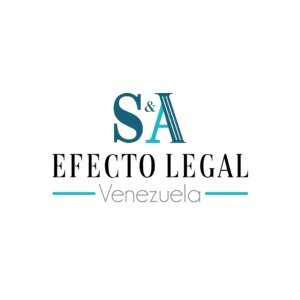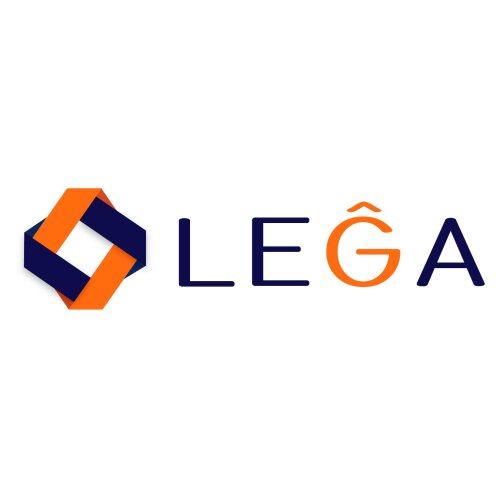Best Sanctions & Export Controls Lawyers in Venezuela
Share your needs with us, get contacted by law firms.
Free. Takes 2 min.
Or refine your search by selecting a city:
List of the best lawyers in Venezuela
About Sanctions & Export Controls Law in Venezuela
Sanctions and export controls in Venezuela refer to the government-imposed restrictions on the movement of goods, services, and financial assets to or from other countries. These controls can originate from Venezuelan regulations as well as from international sanctions regimes enforced by foreign states and organizations against Venezuela, its entities, or its residents. Sanctions typically involve blocking transactions, freezing assets, and restricting business activities, while export controls may limit or prohibit the transfer of specific products, especially those with potential military uses or dual purposes. Due to Venezuela's unique political and economic situation, navigating these laws requires a thorough understanding of international relations and local compliance requirements.
Why You May Need a Lawyer
Legal assistance in the field of sanctions and export controls is often needed due to the complexity and rapidly changing nature of these laws. Common scenarios in which individuals or companies might need a lawyer include:
- Trying to conduct business with foreign entities while ensuring compliance with both Venezuelan and international sanctions.
- Navigating blocked accounts, frozen assets, or denied transactions resulting from sanctions.
- Investigating whether your company or personal activities fall under prohibited export or import categories.
- Dealing with customs issues relating to export controls, such as denied licenses or seized shipments.
- Facing penalties or legal actions for alleged violation of sanctions or export control laws.
- Developing internal compliance programs to avoid inadvertent breaches.
- Clarifying the scope and exceptions for humanitarian trade or medical supplies.
- Responding to investigations by Venezuelan or international authorities.
Lawyers with specific experience in sanctions and export controls can help interpret the laws, represent you in disputes, liaise with regulatory authorities, and minimize legal risks.
Local Laws Overview
Venezuela’s regime on sanctions and export controls consists of domestic laws, regulations, and administrative procedures, as well as the impact of external measures adopted by other countries, such as the United States, the European Union, and neighboring states. The most relevant aspects include:
- Domestic Restrictions: The Venezuelan government may issue its own sanctions targeting perceived adversaries or for national security reasons. These can include export bans, import quotas, and technology transfer restrictions.
- Foreign Sanctions: Many Venezuelan individuals and companies are named in international sanctions lists. These often block access to the US financial system, prohibit transactions with sanctioned parties, and limit trade opportunities.
- Export Control Categories: Certain goods, especially those with military, oil, or dual-use potential, are subject to additional scrutiny or outright prohibitions from both Venezuelan and foreign authorities.
- Licensing Requirements: Both local and international regulations may require licenses to export specific goods or technologies to or from Venezuela.
- Enforcement and Penalties: Noncompliance with sanctions or export controls can lead to heavy fines, confiscation of goods, and criminal prosecution.
Keeping up with all relevant rules is challenging due to the frequent updates and overlapping jurisdictions of different legal systems.
Frequently Asked Questions
What are economic sanctions and how do they affect Venezuelan residents?
Economic sanctions are restrictions imposed by governments or international organizations that limit financial transactions, trade, and access to certain goods or services. For Venezuelan residents, these can restrict what can be imported and exported, freeze assets, or result in denial of services by foreign banks or companies.
Who enforces export controls in Venezuela?
Export controls are primarily enforced by Venezuelan customs authorities and various government ministries, depending on the goods or technology involved. Other countries may also enforce their own export controls on goods sent to Venezuela.
Do US sanctions apply to Venezuelan businesses and individuals?
Yes, US sanctions can apply to Venezuelan businesses and individuals, particularly if they are specifically listed by US authorities or engage in transactions with US persons or through the US financial system.
What is a dual-use good?
A dual-use good is an item that has both civilian and military applications. Such goods are frequently subject to export controls due to their potential use in weapons development or military operations.
Is it possible to obtain a license to export restricted goods to Venezuela?
In some cases, it may be possible to apply for an export license or special authorization, depending on the regulations of the exporting country and the nature of the goods. Licenses are not guaranteed and may be denied for certain products or recipients.
What are the penalties for violating sanctions or export controls in Venezuela?
Penalties can include administrative fines, confiscation of goods, loss of export privileges, and even criminal charges, depending on the severity and nature of the violation.
Can humanitarian aid be sent to Venezuela despite sanctions?
Generally, there are exceptions for humanitarian aid, such as food, medicine, and medical supplies. However, these must typically meet specific requirements and may still be subject to licensing or notification procedures.
How can a company ensure compliance with sanctions and export controls?
Developing a robust compliance program, keeping up to date with relevant laws, and consulting with legal professionals can help a company ensure it is not inadvertently violating any sanctions or export control rules.
What should I do if my shipment to or from Venezuela is detained by customs?
Contact a lawyer with experience in sanctions and export controls immediately to determine the cause of the detention and the best steps for resolution. Providing accurate documentation and demonstrating compliance is critical.
Are there differences between Venezuelan and international sanctions?
Yes, Venezuelan sanctions are imposed by local authorities, while international sanctions come from foreign governments or bodies. Compliance often requires understanding and adhering to multiple layers of regulations.
Additional Resources
Several resources and organizations can provide guidance or up-to-date information on sanctions and export controls affecting Venezuela:
- Venezuelan Ministry of Foreign Affairs
- Superintendencia Nacional de Gestión Agroalimentaria
- Servicio Nacional Integrado de Administración Aduanera y Tributaria (SENIAT)
- US Department of the Treasury - Office of Foreign Assets Control (OFAC)
- European Union External Action Service - Sanctions Map
- International Chamber of Commerce (ICC) Venezuela
- Local law firms with expertise in trade compliance and export controls
Next Steps
If you need legal assistance related to sanctions or export controls in Venezuela, consider the following steps:
- Identify the specific issue or transaction that raises legal concerns.
- Gather all relevant documentation, including contracts, shipping records, and correspondence.
- Contact a specialized sanctions and export controls lawyer in Venezuela as soon as possible.
- Discuss your situation in detail to receive tailored legal advice and guidance on compliance or dispute resolution.
- Follow your lawyer’s instructions regarding communications with authorities, record-keeping, and any required applications or disclosures.
- Stay informed about changes in both local and international sanctions regulations that might impact your activities.
Legal professionals are well equipped to help you avoid unintentional violations, resolve government inquiries, and protect your business interests under complex and shifting regulatory frameworks.
Lawzana helps you find the best lawyers and law firms in Venezuela through a curated and pre-screened list of qualified legal professionals. Our platform offers rankings and detailed profiles of attorneys and law firms, allowing you to compare based on practice areas, including Sanctions & Export Controls, experience, and client feedback.
Each profile includes a description of the firm's areas of practice, client reviews, team members and partners, year of establishment, spoken languages, office locations, contact information, social media presence, and any published articles or resources. Most firms on our platform speak English and are experienced in both local and international legal matters.
Get a quote from top-rated law firms in Venezuela — quickly, securely, and without unnecessary hassle.
Disclaimer:
The information provided on this page is for general informational purposes only and does not constitute legal advice. While we strive to ensure the accuracy and relevance of the content, legal information may change over time, and interpretations of the law can vary. You should always consult with a qualified legal professional for advice specific to your situation.
We disclaim all liability for actions taken or not taken based on the content of this page. If you believe any information is incorrect or outdated, please contact us, and we will review and update it where appropriate.
Browse sanctions & export controls law firms by city in Venezuela
Refine your search by selecting a city.















